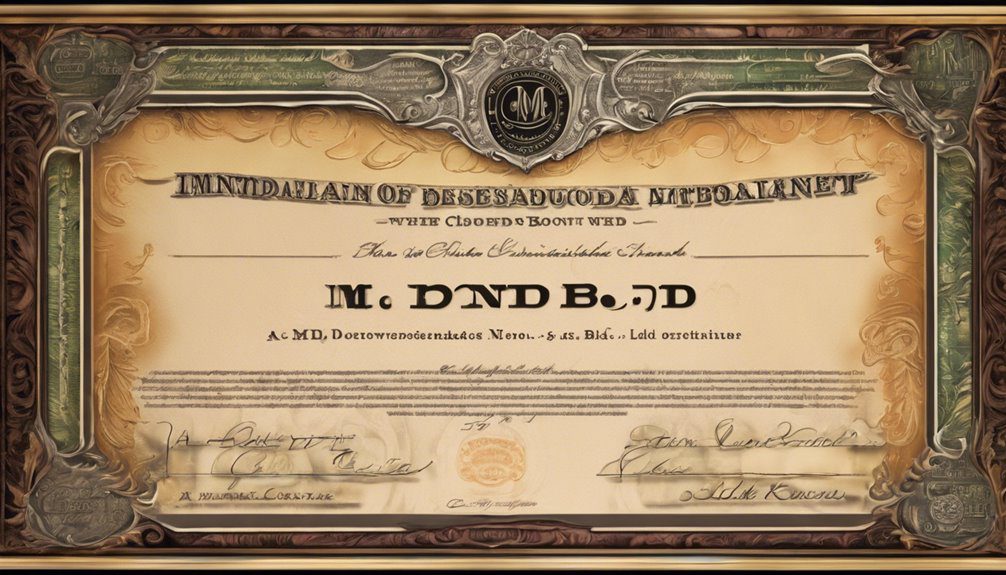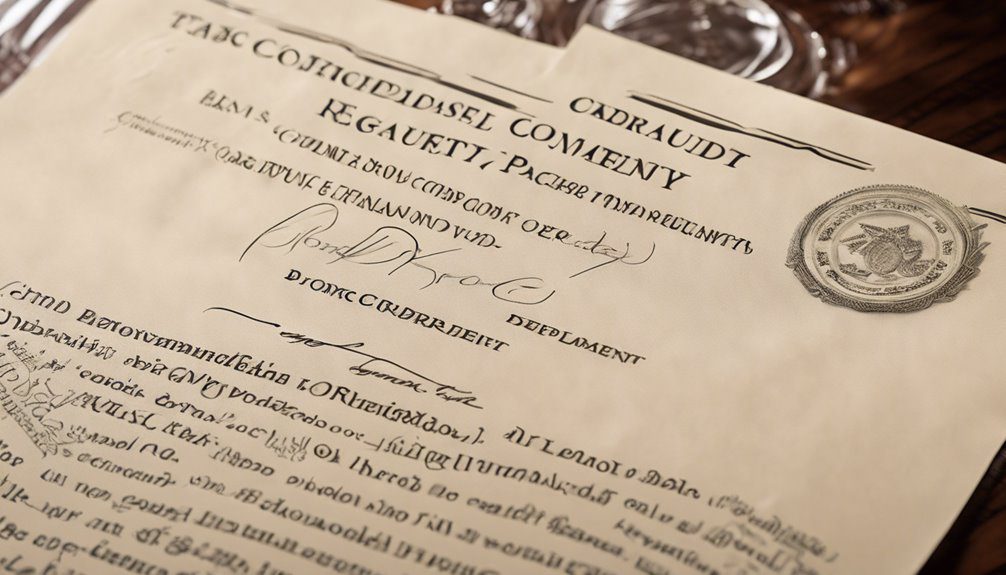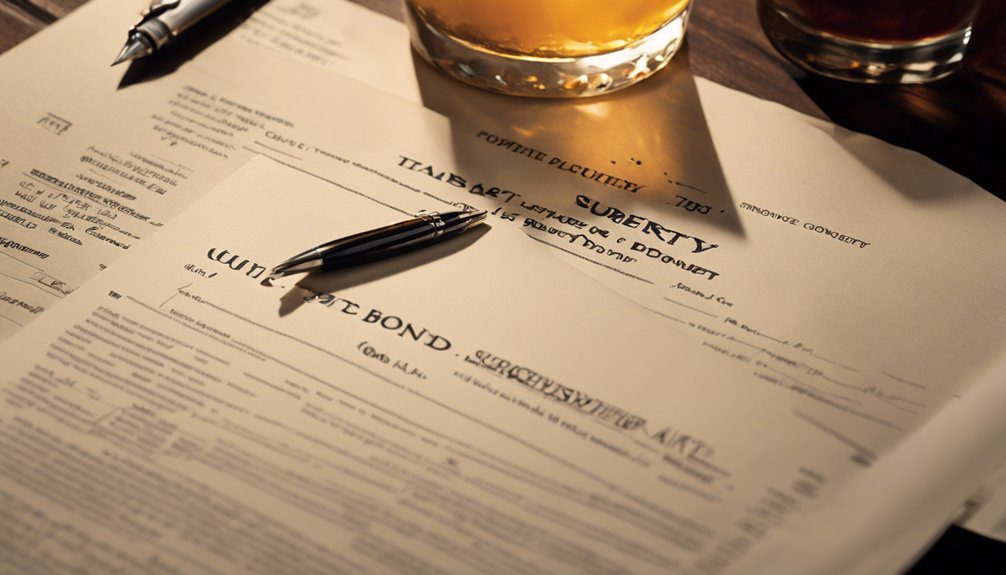If you're considering applying for a Mixed Beverage Permit in Texas, understanding the TABC Conduct Surety Bond—specifically the Mixed Beverage Bond—is essential. This bond isn't just a formality; it acts as a safety net for both your business and the public, ensuring compliance with state alcohol regulations. But what does securing this bond really entail, and how can it impact your operations? As you navigate the complexities of this requirement, you'll find that the implications stretch far beyond paperwork and fees.
Understanding the MB Bond

When you're navigating the world of alcohol licensing in Texas, understanding the MB bond is crucial. The Mixed Beverage (MB) bond is a surety bond required for anyone applying for a Mixed Beverage Permit. This bond acts as a financial guarantee that you'll comply with state laws and regulations regarding the sale and distribution of alcoholic beverages.
You might wonder why this bond is necessary. It protects the state and the public by ensuring that permit holders operate responsibly. If you fail to comply with the laws or regulations, the bond can be used to cover any fines or penalties imposed by the Texas Alcoholic Beverage Commission (TABC).
Essentially, it provides a safety net, promoting accountability in the alcohol industry.
Obtaining an MB bond typically involves a bonding company assessing your financial history and risk. You'll need to provide information about your business and may have to pay a premium based on this assessment.
Importance of the MB Bond
The MB bond serves as a vital safeguard for both your business and the community it serves. By obtaining this bond, you demonstrate your commitment to responsible alcohol service, which is crucial for maintaining a safe and respectful environment. This bond protects the public by ensuring that you adhere to state regulations and industry standards, reducing the risks associated with serving mixed beverages.
Moreover, the MB bond can foster trust among your patrons and the community. When customers see that you have taken the necessary steps to obtain this bond, they're more likely to feel secure and confident in your establishment. This trust can lead to increased patronage and a positive reputation, which are essential for your business's longevity.
Additionally, the MB bond can shield you from potential financial liabilities. If any issues arise related to your alcohol service, the bond can provide financial coverage, helping you avoid significant losses. In this way, it acts as a safety net, allowing you to focus on running your business effectively. Furthermore, obtaining this bond ensures compliance with state-specific bond requirements, reinforcing your commitment to legal operations in the liquor industry.
Legal Requirements for MB Bond

Obtaining an MB bond isn't just a matter of good practice; it's also a legal requirement in many states for businesses that serve mixed beverages. This bond serves as a financial guarantee that you'll comply with local laws and regulations governing the sale of alcohol.
When you apply for a mixed beverage permit, you'll typically need to present this bond to the relevant state authorities.
Legal requirements for the MB bond can vary, but generally, you'll need to secure a bond for a specific amount, which acts as a safety net for the state in case of any violations. If you fail to comply with the regulations, the bond can be used to cover fines or damages resulting from your actions.
It's crucial to check the specific requirements in your state, as they may have different stipulations regarding the bond amount, duration, and conditions for renewal.
Not adhering to these legal requirements can result in penalties or loss of your permit, jeopardizing your business. So, make sure you understand and meet the requirements to keep your establishment compliant and operational.
How to Apply for the MB Bond
Applying for an MB bond involves a straightforward process that can save you time and stress.
First, gather the necessary documentation, which typically includes your business information, owner details, and any required permits. This documentation helps ensure a smooth application.
Next, research surety bond companies that specialize in MB bonds. Compare providers to find one that meets your needs and offers competitive rates.
Once you've chosen a company, complete their application form and submit it along with your documentation.
After submitting your application, the surety company will assess your creditworthiness and business history. They may request additional information or documentation during this process.
Be prepared to answer any questions they've to expedite your approval.
Once approved, you'll receive your bond, which you'll need to file with the Texas Alcoholic Beverage Commission (TABC).
Ensure you comply with all TABC requirements to avoid any potential issues. After filing, keep a copy of your bond for your records.
Costs Associated With the MB Bond

Understanding the costs associated with the MB bond is vital for budgeting your business expenses. The premium for the bond typically ranges from 1% to 15% of the total bond amount, depending on factors like your credit score, financial history, and the bond amount required by the TABC.
If you have a strong credit profile, you might secure a lower premium, while a poor credit history can lead to higher rates.
Additionally, you'll want to consider any fees charged by your surety bond provider. These can include application fees, processing fees, or even administrative costs.
Make sure to ask your provider for a detailed breakdown of all potential charges.
It's also crucial to remember that your bond needs to be renewed periodically, which means you'll face ongoing costs.
Factor this into your long-term budget to avoid any surprises down the line. Furthermore, the costs associated with surety bonds can vary significantly based on state regulations and local jurisdiction requirements.
Responsibilities of Bond Holders
As a bond holder, you're responsible for adhering to the terms set forth by the TABC and maintaining compliance with all relevant laws and regulations. This means you need to understand both the specifics of the bond and the legal obligations tied to your mixed beverage permit.
You'll need to ensure that your business operates in accordance with local, state, and federal laws, particularly those related to the sale of alcoholic beverages. Regularly reviewing your practices and staying informed about any changes in legislation is crucial. If you're found in violation, the bond could be called upon to cover any penalties or damages, which can impact your finances and reputation.
Moreover, you should keep accurate records of your transactions and adhere to responsible service practices. This not only protects your bond but also fosters a safe environment for your patrons. Additionally, understanding the importance of debt management regulations can further enhance your compliance efforts and operational success.
If you face any legal issues, it's vital to communicate promptly with your surety company. By fulfilling these responsibilities, you can help ensure your continued eligibility for the mixed beverage permit and maintain a successful operation in the competitive beverage industry.
Common Challenges and Solutions

Navigating the complexities of operating under a TABC bond can present several challenges that may impact your business. One common issue is understanding the bond requirements and ensuring compliance. If you're unsure about what's needed, it's crucial to consult with a legal expert or a bonding agent who can offer tailored advice specific to your situation.
Another challenge is the financial implications of securing the bond. Premiums can vary and might strain your budget. To mitigate this, shop around for different bonding companies to find competitive rates. Additionally, maintaining a good credit score can help lower your costs.
You might also face difficulties in renewing your bond. As regulations evolve, staying updated is vital. Set reminders for renewal dates and regularly check for any changes in TABC requirements to avoid lapses.
Lastly, dealing with claims can be stressful. If a claim is filed against your bond, act quickly. Gather all relevant documentation and consult with your bond provider to resolve the issue efficiently.
Conclusion
In conclusion, securing the TABC Mixed Beverage Bond is essential for your establishment if you want to operate legally in Texas. This bond not only demonstrates your commitment to responsible alcohol service but also protects you from potential fines and penalties. By understanding the requirements and processes involved, you can navigate any challenges that arise. Ultimately, having this bond fosters trust with your patrons and contributes to a stable, compliant business environment.

